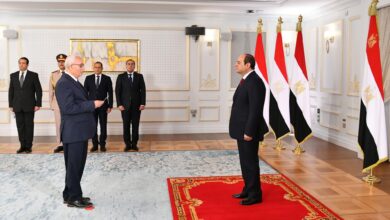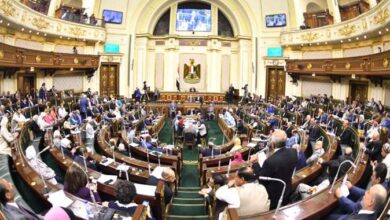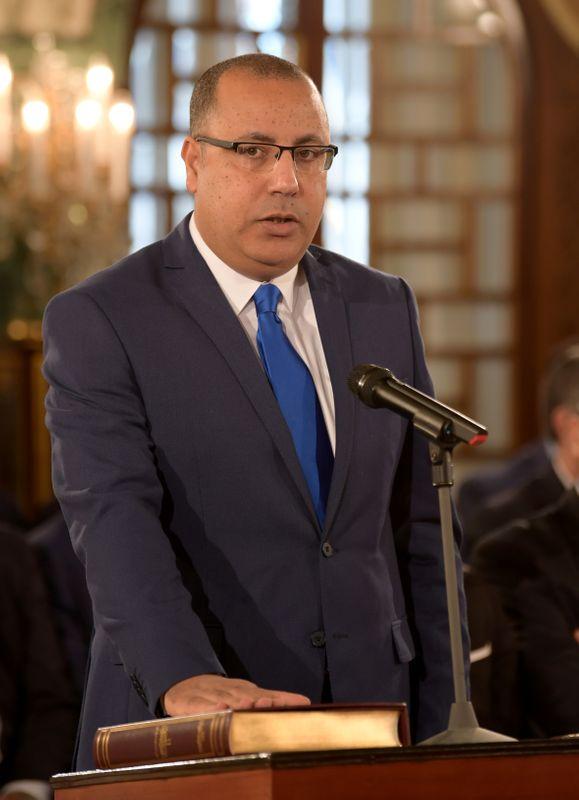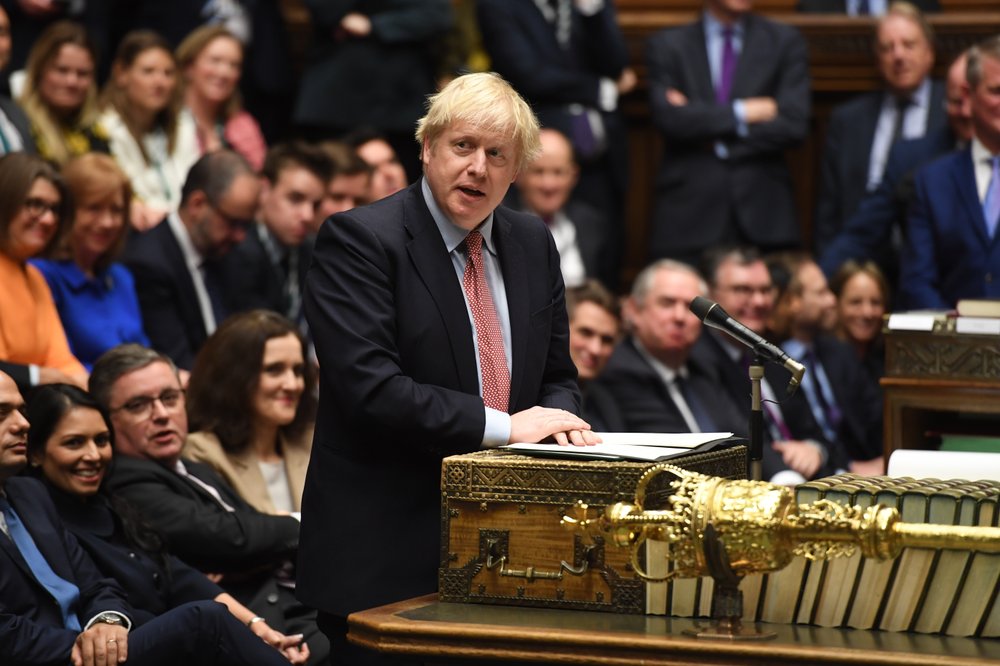Mainstream press led with news of yesterday’s cabinet and governorate reshuffle, which saw the appointment of two new ministers and five new governors. Al-Dostour wrote that Alaa Fahmy, former National Post Authority head and recently appointed Minister of Transportation is being "rewarded for privatizing the Post Authority," while Ahmed Badr, the new minister of education and the son of the notorious former minister of interior, was appointed in recognition of his ability to "transform the [Ain Shams] university campus into a military camp managed by security."
Al-Dostour’s chief editor Ibrahim Eissa took a sarcastic tone. "This is the best, most beautiful and wonderful cabinet reshuffle ever to take place since Mubarak took over Egypt’s neck," Eissa wrote, implying that the message is clear: there will be no change.
The other leading story in today’s press was about the Gaza wall. Parliament has approved the wall’s construction and the government is determined to silence any who oppose it. "There is no doubt that the season to attack Egypt is now a well-known phenomenon. When the situation gets tough in Iran […] we witness an immoral attack against Egypt and our position. And it seems this is orchestrated by an impotent coalition headed by Tehran, in which it manipulated Hizbullah and its cheap propaganda machine Al-Jazeera in a constantly failed attempt to mobilize the Egyptian people against their leadership," read the editorial in government-run Al-Ahram.
Also in Al-Ahram, Makram Mohamed Ahmed blamed the Muslim Brotherhood for using the situation in Palestine to mobilize people against the Egyptian state. "For over 60 years the Muslim Brotherhood has successfully made use of the Palestinian issue although they have failed to provide the Palestinian people with anything much," Ahmed wrote. "And now the Brotherhood, in spite of their electoral problems, are leading a campaign against the ruling regime in Egypt, trying to embarrass them and requesting them to lift the Gaza siege."
Others saw things differently. Essam El Erian in Al Dostour was indignant that the Islamic Research Council is being dragged into the Gaza fray to support the government. Grand Sheikh of Al-Azhar Mohamed Tantawy and the council approved the building of the wall in a statement "that clearly was meant to support the Egyptian regime." El Erian argues their position is a "crime… that will continue to haunt them in this life and they will not escape it in the next one either."
In the independent paper Al-Shorouk, Salma Ahmed Salma argued that the basic problem is that Egyptians have lost the culture of retaliation. "Since there is no culture [that accounts for] difference [of opinion] and retaliation in Egyptian society, it is natural that [parliamentary] sessions are convened for exchanges of abuse and bad language. And so the heritage of the Egyptian parliament declines into an abyss. The culture of retaliation and expression of differences attain unprecedented dimensions of political discourse."
Fahmy Howiedy, writing in the same paper, said that Egyptian media has in recent times adopted the slogan "all who are not with me are against me." It seems that, as the criticism of the border wall increases, official platforms have decided to label all those who disagree with it a partner in the hate campaign against Egypt.
"What is amazing is that the media in Egypt, which is politically motivated, is willing, in order to win the tactical battle of the wall, to lose its strategic relationships with Gaza and the Arab world around Egypt," wrote Howiedy.
But who is listening? Most people are still considering the 2009 balance sheet and their wish lists for 2010. Galal Doweidar in Al-Akhbar wrote that on his list are the problems of population explosion, reforming the educational system, confronting the "monopoly craze," finding a solution to Cairo’s traffic, bringing an end to the wave of various diseases overtaking the country, solving the problem of garbage, and stopping irrigation of agricultural lands with sewage water–among other issues.
Doweidar’s list is formidable, but tomorrow is another day.




